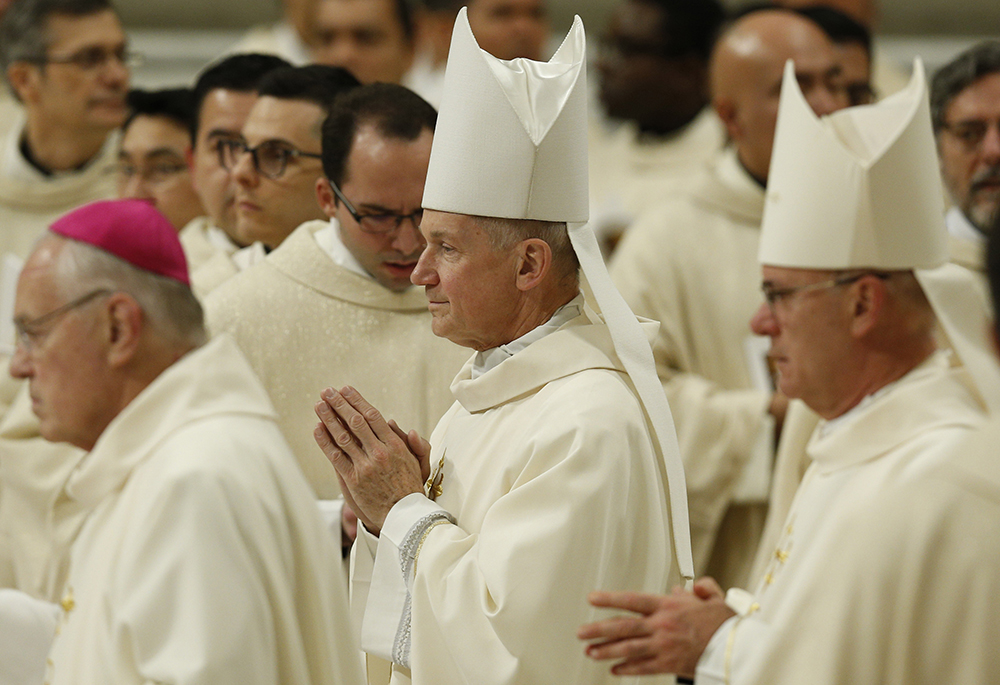
Bishop Thomas Paprocki of Springfield, Illinois, center, arrives in procession for Pope Francis' celebration of Mass marking the feast of Our Lady of Guadalupe in St. Peter's Basilica Dec. 12, 2019, at the Vatican. In attendance were U.S. bishops from Illinois, Indiana, and Wisconsin making their "ad limina" visits to the Vatican. (CNS/Paul Haring)
One bishop writing a critical article about another bishop may be just the kind of "insider baseball" many Catholics scroll past or don't even hear about. But when one bishop accuses another — a cardinal, no less — of heresy, we should all pay attention. This truly goes beyond the norms of even spirited debate in our church.
Although he didn't name names in his Feb. 28 essay in First Things magazine titled "Imagining a Heretical Cardinal," Bishop Thomas Paprocki of Springfield, Illinois, quoted San Diego Cardinal Robert McElroy's recent article that called for more inclusion for women, LGBTQ people and others in the church. Paprocki also referenced a "hypothetical" cardinal who he said "state[s] publicly that homosexual acts are not sinful and same-sex unions should be blessed by the Church." Paprocki told a Catholic blog that the latter comment referred to "some European cardinals."
Is this what polarization in the church has come to? It's a sad day when a church leader sounds more like a MAGA politician on Fox News calling someone a traitor than a follower of Jesus. How much further is the American Catholic right going to go?
That this mudslinging is happening at a time when Pope Francis is calling for more openness to discussion and listening through a process of synodality or "walking together" makes it all the more egregious. It's hard to "walk together" with those who are quick to call someone a heretic just for raising questions.
Advertisement
We believe in the value of open discussion, even open disagreement. And we respect Francis' apparent decision not to clamp down on bishops who are committed to a culture war against their brother bishops — and sometimes against the pope himself.
But this churlish, childish name-calling reflects poorly on the U.S. church, not to mention on Paprocki himself. You would think that the newly elected chair of the U.S. bishops' Committee on Canonical Affairs and Church Governance would be more careful about throwing around the word "heresy."
The Springfield bishop was also among several U.S. prelates recently caught trying to evade Francis' attempts to limit the traditional Latin Mass, only to have the pope reaffirm the authority of the Vatican's worship office to impose such restrictions, for the sake of unity in the church. Francis' slap down of those bishops trying to circumvent this law came just one week before Paprocki's First Things essay was published.
Paprocki later told NCR staff reporter Brian Fraga that he was "hoping to continue a conversation" with McElroy, with whom he had "exchanged some emails" after the essay's publication. Paprocki reportedly did not discuss his essay with McElroy prior to its publication. That is not how you do conversation.
Stunts like this send the message that any attempts at inclusion — or even conversations about inclusion, such as the ones McElroy is trying to initiate — will be immediately shut down by conservative church leaders. Such behavior reeks of desperation and is unbefitting of a bishop.






